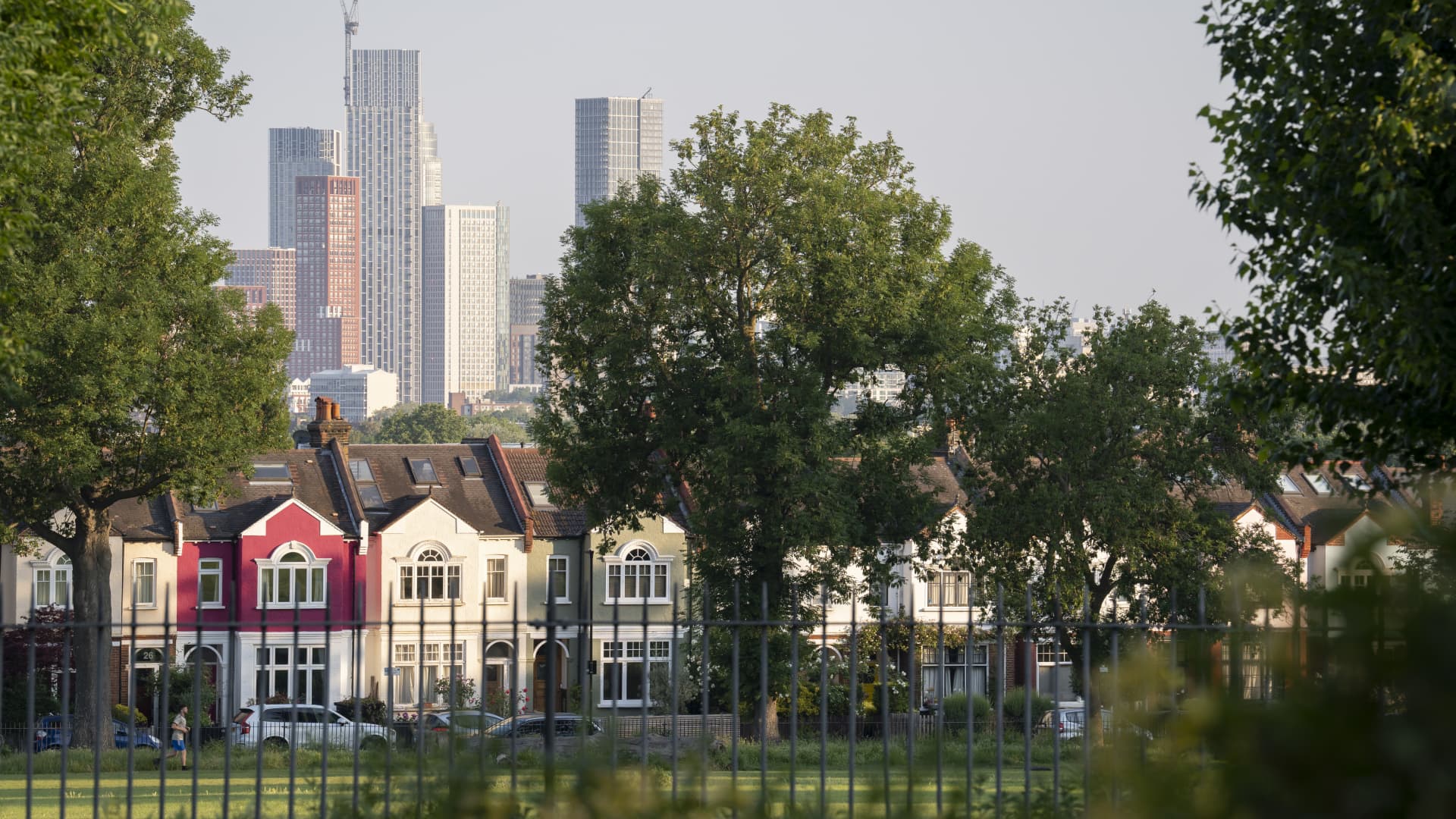10 Cities Where Housing Inventory Is Crazy Low In 2022
Housing markets in the United States have been on a rollercoaster ride in the last two years as the impact of the pandemic made itself felt on homebuying. Across the country, housing inventories are at all-time lows and home prices are rising. Based on data from Redfin, including housing inventory, months supply of homes, and average number of days on the market, we analyzed 167 major housing markets to find which cities are feeling the squeeze the most. Read on to find out which cities are suffering from seriously low housing inventory.
10 Cities Where Housing Inventory is Crazy Low in 2022
The 10 cities that have some of the lowest inventory of available homes for sale, as well as where houses are getting bought up incredibly fast, tend to be located in the U.S. West region, with one exception — Grand Rapids, Michigan, which is in the Midwest. Here is a look at the 10 cities with severely low housing inventory.
Lakewood, Colorado
Lakewood has been a hot housing market for several years at this point. Months of supply is defined as how long it would take the available supply of homes to be bought up if no new homes come on the market. Five years ago, in February 2017, Lakewood had only 0.8 months of supply of homes. But fast-forward to February 2022 and Lakewood is now down to just 0.3 months of supply of homes. The city’s available housing inventory stood at 155 homes in February 2020, before plummeting down to just 35 homes by February 2022, a drop of 77.4% in only two years. Meanwhile, the average number of days a house for sale spends on the market is a mere four days as of February 2022. Not surprisingly, the median sale price in Lakewood has risen by nearly 23% in a year, from $450,000 in February 2021 to $552,500 in February 2022.
Bellevue, Washington
This large suburb of Seattle now ranks as one of the most expensive housing markets of 2022. As of February 2022, the median sale price in Bellevue is $1,511,000. In fact, 70.5% of homes in Bellevue sold above their asking price. In the course of just 12 months, housing inventory in Bellevue fell by 65.6%, from 125 available homes for sale in February 2021, down to 43 available homes in February 2022. From February 2020 to February 2022, Bellevue’s months of supply of homes fell from 0.9 months down to 0.5 months, meaning that if no new homes come on the market, it’d take half a month to exhaust available homes for sale.
Aurora, Colorado
Homes are more affordable in Aurora than in Lakewood or Bellevue, but its housing inventory is falling fast, and its homes are getting bought up quickly. Two years ago, in February 2020, Aurora had 1.1 months of supply of homes; two years later, Aurora’s months of supply of homes is a mere 0.3 months. Over that same period, Aurora housing inventory plunged by 78.4%, from 592 available homes in February 2020, down to 128 homes available for sale in February 2022. Correspondingly, the number of days on the market for Aurora homes dropped from an average of 14 days in February 2020 to just 4 days in February 2022. Also, over that same two-year period, the median sale price in Aurora rose by over 35%, from $352,000 in February 2020 to $476,000 in February 2022. As of February 2022, a full 73.6% of homes were sold above their asking price.
Thornton, Colorado
The third Colorado housing market to make this list, Thornton has witnessed a flurry of homebuying. In February 2020, housing inventory in Thornton stood at 201 available homes for sale. Now, housing inventory is down to just 75 homes for sale, a decline of 62.7% in two years. At the same time, Thornton’s months of supply of homes was cut in half: From 1.2 months of supply in February 2020 to only 0.5 months of supply in February 2022. Over that same period, the average number of days a home for sale spent on the market before being bought up was 19 in February 2020, before falling to just five days on the market in February 2022. The squeeze on housing inventory has pushed the median sale price in Thornton up 28.2%, from $405,500 in February 2020 to $520,000 in February 2022.
Elk Grove, California
This sizeable suburb of Sacramento has become one of the hottest housing markets in California. The median sale price in Elk Grove rose by 42.1% in two years, from $455,000 in February 2020 to $646,500 in February 2022. Driving up home prices in Elk Grove is the dwindling supply of homes. Housing inventory dropped by 63.6%, from 176 available homes in February 2020, down to 64 available homes for sale. As such, the months of supply of homes in Elk grove has fallen from 1.4 months’ supply in February 2020 to 0.5 months’ supply in February 2022.
Sunnyvale, California
Based on the 167 housing markets analyzed in this study, Sunnyvale is the most expensive. Its median sale price for February 2022 is $1,780,000, up 35.4% from two years ago when it was $1,315,000 in February 2020. Over the last 12 months, housing inventory in Sunnyvale was slashed in half, from 108 available homes in February 2021, down to 55 available homes for sale in February 2022. Over that same one-year period, the average number of days a home spent on the market also dropped by about half, from 15 days in February 2021 to only 8 days in February 2022. On top of that, an incredible 85.1% of homes sold above their asking price in February 2022.
Grand Rapids, Michigan
Grand Rapids is one of the more interesting housing markets to make this list. Michigan is one of the cheaper states in terms of cost of living. And homes are comparatively very affordable in Grand Rapids, with a median sale price of $240,000 in February 2022, up by about 30% from February 2020, when the median sale price was $184,900. The Grand Rapids housing market has heated up in recent years, with the city’s months of supply of homes sinking from 1.2 months in February 2020 to 0.5 months in February 2022. Over the same two-year period, housing inventory dropped by 67.3%, from 330 available homes for sale in February 2020, down to 108 available homes in February 2022. What’s more, 87.1% of homes sold went off the market with just two weeks in February 2022.
Tacoma, Washington
The second Washington city to make this list, Tacoma has witnessed its median sale price rise by 35.7% over the last two years, from $350,000 in 2020 to $475,000 in February 2022. Housing inventory in Tacoma fell by nearly half, from 283 available homes in February 2020, down to 147 available homes in February 2022. As such, Tacoma’s months of supply of homes has declined precipitously over the same two-year period. In February 2020, Tacoma had 1.1 months of supply of homes, but by February 2022, that figure is down to only 0.5 months of supply of homes.
Fremont, California
This pricey housing market in the Bay Area has only gotten more expensive while its housing inventory has dwindled. Fremont’s housing inventory has dropped by 55.4% in two years, from 148 available homes in February 2020 to 66 available homes in February 2022. Over the same period, the city’s months of supply of homes fell from 1.6 months down to 0.6 months. Meanwhile, the percentage of active listings that experienced price drops declined from an already low 12.8% of listings in February 2021 to just 6.1% of listings in February 2022. Even more alarming is that 93.6% of homes sold went off the market in just two weeks. In just one year, the median sale price in Fremont rose by more than a fifth, from $1,157,500 in February 2021 to $1,399,915 in February 2022.
Roseville, California
Roseville is another suburb of Sacramento to catch fire as a housing market. From an available for-sale inventory of 211 homes in February 2020, Roseville’s housing inventory is down 58.8%, to just 87 homes available for sale in February 2022. Likewise, Roseville’s months of supply of homes dropped by more than half, from 1.5 months of supply in February 2020, down to 0.7 months in February 2022. Homes are selling fast in Roseville, with 82.2% of homes for sale going off the market within two weeks. In the two years from February 2020 to February 2022, the median sale price in Roseville rose by 34.7%, from $490,000 to $659,900.








